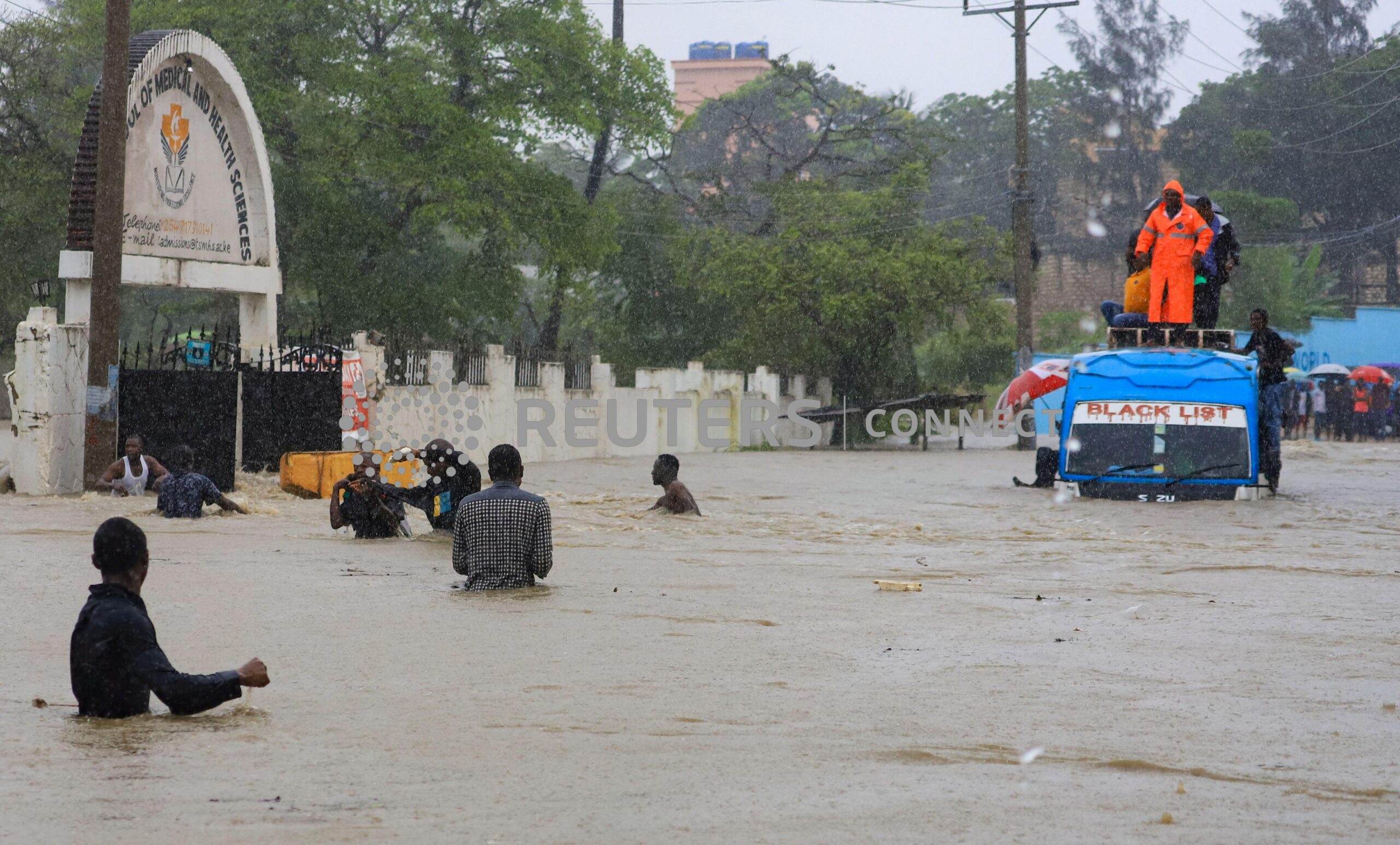
Due to heavy rains and landslides along the coastal region, Kenya’s state-owned railway company announced disruptions in cargo services to and from the port city of Mombasa.
In recent weeks, the Horn of Africa has witnessed heavy rainfall and flash floods attributed to the El Niño weather phenomenon, resulting in numerous casualties, with at least 46 reported deaths in Kenya.
Kenya Railways reported that unforeseen disruptions caused by floods and landslides in the past few days have led to delays in evacuating cargo from Mombasa and Nairobi and delivering cargo to the Port of Mombasa.
“Consequently, this has affected normal train operations, including cargo transfers, loading as well as offloading activities at the Port of Mombasa,” it said in a statement on Saturday posted on X, formerly Twitter.
A landslide occurring in a segment of the cargo railway line linking Mombasa and Nairobi has prompted “the closure of that section for all freight trains”, Kenya Railways announced.
According to Kenya Railways, passenger trains are operational, but they are currently experiencing delays.
Mombasa, the nation’s second-largest city, along with its railway cargo line, plays a crucial role not only in serving Kenya but also in facilitating transportation for landlocked neighboring countries in the region such as Uganda, South Sudan, and Rwanda.
On Thursday, Save the Children reported that over 100 individuals, including 16 children, had tragically lost their lives, and more than 700,000 people had been displaced from their homes in the Horn of Africa due to flash flooding.
The British charity revealed that approximately 46 fatalities were reported in Kenya, 32 in Somalia, and an additional 33 in Ethiopia due to the ongoing rains, emphasizing that there were no indications of the rains relenting.
According to the latest figures released on Saturday by the UN humanitarian agency OCHA, the count of individuals displaced by the heavy rains and floods in Somalia has surged, nearly doubling within a week to reach 649,000 people.
